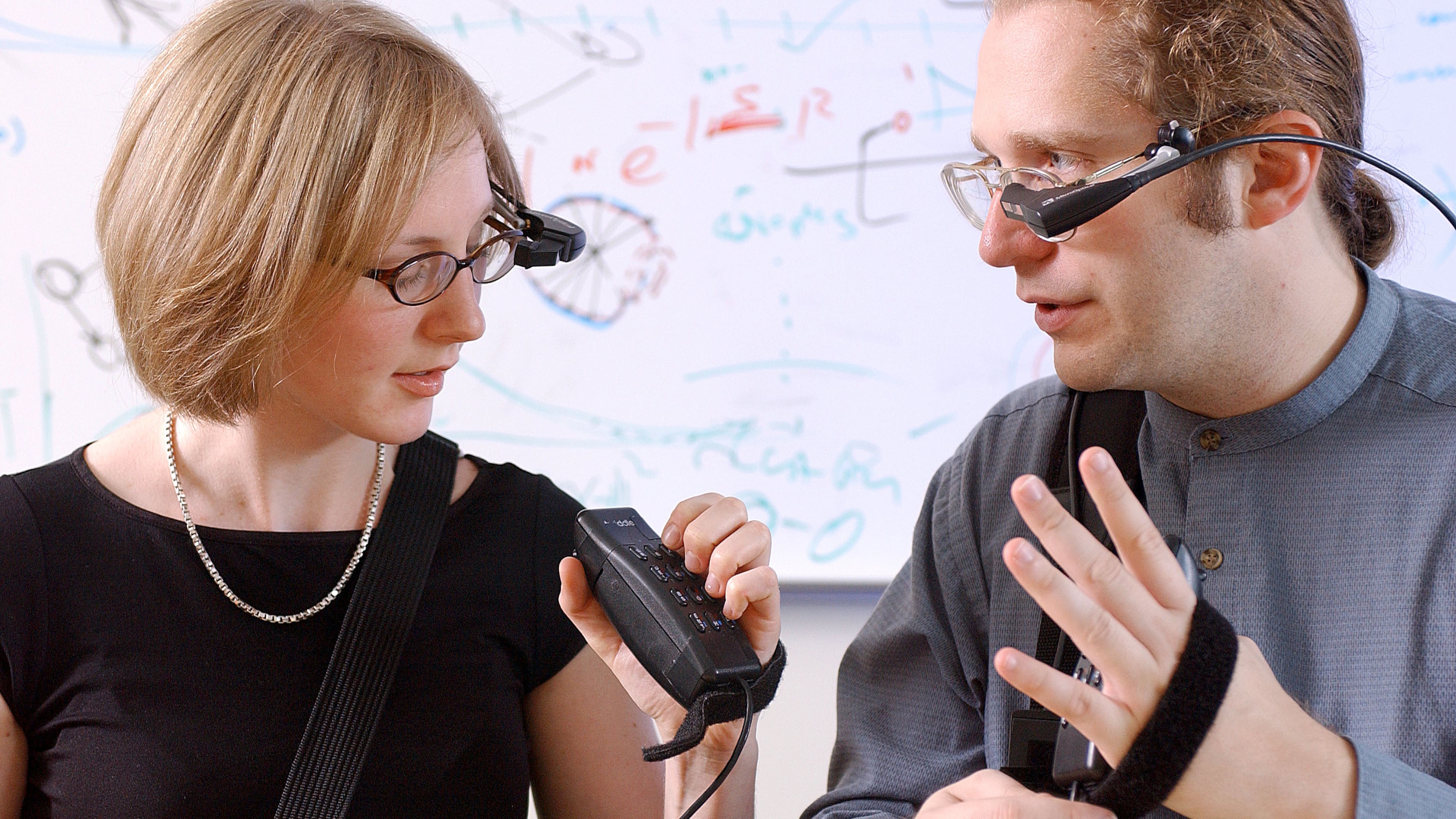Tech prof laid groundwork for Google Glass

Nearly two decades ago — before search engines or smartphones — Thad Starner, then 24, sat in front of a qualifying panel at the Massachusetts Institute of Technology. For several hours he was grilled by four professors, a prerequisite before he could write his Ph.D thesis.
At the end, one of his inquisitors asked: Hey, Thad, were you using your wearable computer?
Starner, clad in a get-up that covered his left eye with wires leading down to a keyboard on his forearm, plus a satchel holding a battery pack and a measly 80 megabyte hard drive, said: Yes.
His answer touched off a half-hour debate that almost culminated in MIT conferring its degree on “Thad Starner and his computer.” That, sadly, did not come to pass.
“It would have been hilarious,” the 44-year-old, now on faculty at Georgia Tech, said in hindsight.
Starner’s work at MIT’s Media Lab would later lay some of the groundwork for Google Glass. Since 2010, he been a technical lead for the project, as well as the founder and director of the Contextual Computing Group at Georgia Tech’s College of Computing.


